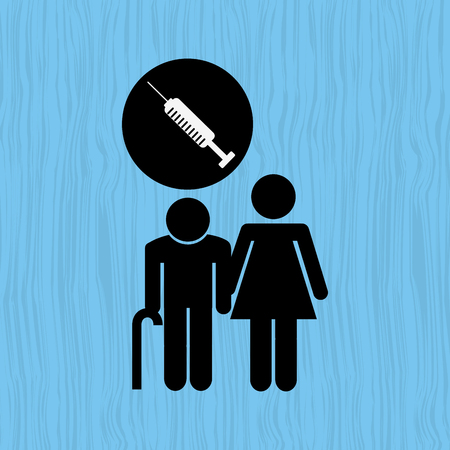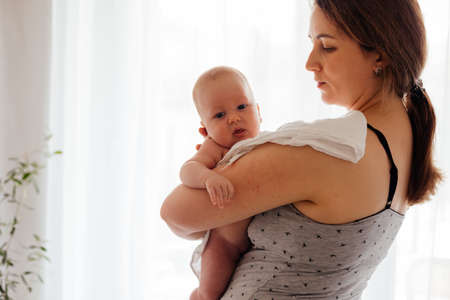Introduction to the UK Vaccination Schedule
As parents, we all want to give our little ones the very best start in life. One of the most important ways to protect your child’s health is by following the recommended vaccination schedule provided by the NHS. Immunisations are carefully planned to shield babies from serious illnesses right from their earliest months, making sure they grow up happy and healthy. The NHS offers clear guidance and support for families at every step, ensuring that you never feel alone on this journey. By keeping up-to-date with your child’s vaccines, you’re not only safeguarding them against potentially harmful diseases but also helping to protect other children and vulnerable people in your community. Following the NHS immunisation schedule means peace of mind, knowing you’re giving your baby strong protection, guided by expert recommendations trusted across the UK.
2. Key Vaccines for Babies: What to Expect and When
Understanding which vaccines your baby needs and when they should receive them can make all the difference in keeping your child healthy. The NHS vaccination schedule is thoughtfully planned to offer protection from serious diseases right from the start of life. Here’s a helpful timeline, featuring UK-specific vaccine names, so you can keep track with confidence.
Essential Baby Vaccinations in the UK
| Age | Vaccine Name | Diseases Protected Against |
|---|---|---|
| 8 weeks | 6-in-1 (DTaP/IPV/Hib/HepB), Rotavirus, MenB | Diphtheria, Tetanus, Whooping Cough, Polio, Hib (Haemophilus influenzae type b), Hepatitis B, Rotavirus, Meningococcal B |
| 12 weeks | 6-in-1 (Second dose), Rotavirus (Second dose), PCV (Pneumococcal Conjugate Vaccine) | Diphtheria, Tetanus, Whooping Cough, Polio, Hib, Hepatitis B, Rotavirus, Pneumococcal infections |
| 16 weeks | 6-in-1 (Third dose), MenB (Second dose) | Diphtheria, Tetanus, Whooping Cough, Polio, Hib, Hepatitis B, Meningococcal B |
| 1 year | Hib/MenC booster, MMR (Measles, Mumps & Rubella), PCV booster, MenB booster | Meningitis C & Hib booster, Measles, Mumps, Rubella, Pneumococcal infections booster, Meningococcal B booster |
Your Handy Vaccine Timeline at a Glance
This schedule may look busy at first glance, but each appointment is an important step in protecting your little one. Most GP surgeries will send reminders when vaccinations are due. If you’re ever unsure or need to reschedule because of illness or other reasons (which happens in real family life!), just contact your GP practice—they’re always happy to help.
A Few Tips for Parents in the UK:
- Bring your Red Book: NHS staff will update this Personal Child Health Record at every appointment.
- No extra cost: All routine baby vaccinations are free on the NHS.
- Ask questions: Nurses and GPs are used to parents having concerns—there’s no such thing as a silly question!
- If you miss a vaccine: Catch-up appointments can be arranged at any time.
Navigating the NHS Vaccination Schedule Together
The NHS ensures that these vaccines are safe and effective for babies growing up in the UK. By staying on top of this timetable and keeping open communication with your healthcare team, you’re giving your child a healthy start in life—and peace of mind for yourself as well.

3. Preparing for Your Baby’s Vaccination Day
Booking Your Appointment with the Local GP Surgery
In the UK, your baby’s vaccinations are typically organised through your local NHS GP surgery. As a parent, you’ll usually receive a letter or text reminder when it’s time to book an appointment. If you haven’t received one, don’t worry—simply call your GP surgery directly to arrange a convenient slot. Most surgeries are understanding of family routines and may offer appointments at times that suit you best. Don’t forget to bring your baby’s Red Book (Personal Child Health Record) along to every visit, as this is where all immunisation records will be kept up to date.
Tips for a Calm Vaccination Experience
- Stay Positive: Babies can pick up on your mood. Speaking in a gentle, reassuring voice and keeping calm yourself helps your little one feel secure.
- Bring Comfort Items: Take along your baby’s favourite blanket, soft toy, or dummy—familiar items can be soothing during unfamiliar moments.
- Feed Beforehand: Feeding your baby before the appointment can help them feel settled and comfortable. For breastfed babies, offering a feed afterwards can also provide extra comfort if they’re upset.
Fun Activities to Prepare Your Baby
- Pretend Play: At home, use a teddy bear and a toy syringe to “play doctor” together. This simple role play can help familiarise older babies with the idea of visiting the nurse and make it less daunting.
- Singing Songs: Singing gentle nursery rhymes or lullabies before and after the jab can offer reassurance and distract your child.
Looking After Your Baby Afterwards
After the vaccination, cuddles and comfort are key! You might like to plan a quiet day with some extra snuggle time, perhaps reading stories or enjoying some skin-to-skin contact. Most side effects are mild—such as slight redness at the injection site or a low fever—and usually settle quickly. If you have any worries, don’t hesitate to ask your nurse or ring NHS 111 for advice.
4. After the Jab: Caring for Your Baby Post-Vaccination
Once your little one has had their vaccinations, it’s natural to feel a bit anxious about what happens next. Most babies experience only mild side effects after their jabs, but knowing what to expect and when to ask for help can make all the difference. Here’s a guide tailored to UK parents, following NHS recommendations.
What to Expect After Vaccinations
It’s common for babies to have some mild reactions after their immunisations. These are usually short-lived and show that your child’s immune system is responding as it should. The most frequently observed side effects include:
| Common Side Effect | How Long It Lasts | What You Can Do |
|---|---|---|
| Soreness or redness at injection site | Up to 2 days | Cuddle your baby and keep the area clean; avoid tight clothing over the site. |
| Mild fever (temperature up to 38°C) | 1-2 days | Dress your baby in light clothes and give infant paracetamol if advised by your health visitor or GP. |
| Being off-colour or irritable | A day or two | Lots of cuddles and reassurance can help. Offer feeds as normal. |
| Lack of appetite | A day or two | This is common; let them feed when they want and don’t force it. |
How to Spot Common Side Effects
You’ll likely notice small changes in your baby’s behaviour or appearance after their jab. Here are some tips for keeping an eye on things:
- If your baby develops a slight temperature, check it using a digital thermometer under their armpit. In the UK, you can pick these up easily at pharmacies like Boots or online from NHS-approved retailers.
- The injection site might look red or slightly swollen—this should go down within 48 hours.
- Your little one may be fussier than usual, but gentle rocking and soothing usually helps.
- If they seem sleepier or eat less, this typically resolves quickly on its own.
When to Seek Advice: Knowing When to Call Your GP or NHS 111
While serious reactions are rare, it’s important to know when professional advice is needed. Contact your GP, health visitor, or call NHS 111 if you notice any of the following:
- Your baby has a high fever (above 39°C) that doesn’t come down with paracetamol.
- The redness or swelling at the injection site gets worse after 48 hours or looks infected (hot, hard, oozing pus).
- Your baby cries inconsolably for more than three hours straight.
- You see signs of an allergic reaction, such as difficulty breathing, swelling of the face or lips, or a widespread rash—call 999 immediately in this case.
Reassurance from the NHS and Local Health Visitors
Remember, the NHS provides lots of support for parents after vaccinations. If you’re unsure about anything, don’t hesitate to ring your local surgery or drop in at your local children’s centre for friendly advice from health visitors who understand UK vaccination schedules inside-out. By staying informed and prepared, you’ll help ensure your baby stays happy and healthy through every stage of their immunisation journey.
5. Answers to Common UK Parent Questions
Is the NHS Red Book important for tracking my babys vaccinations?
Absolutely! The NHS Personal Child Health Record, more fondly known as the Red Book, is a familiar sight in most British households with young children. This handy record is given to you after your baby is born and is your go-to place for keeping track of all immunisations, health checks, and developmental milestones. Remember to bring it along to every vaccination appointment—health visitors and GPs will update it each time your child receives a jab.
Are baby vaccinations free on the NHS?
Yes, all routine childhood vaccinations listed in the NHS schedule are completely free for families living in the UK. This is part of the NHS’s commitment to ensuring every child gets the best start in life, regardless of background or circumstances. There’s no need to worry about hidden costs—just make sure you book your appointments at your GP surgery or local health clinic when they’re due.
Are vaccines safe for my child?
Understandably, many parents have questions about vaccine safety. Rest assured, all vaccines used by the NHS have undergone rigorous safety testing and are continuously monitored. Minor side effects like a sore arm or mild fever can happen, but serious reactions are extremely rare. If you have specific concerns or your little one has special health needs, don’t hesitate to chat with your GP or health visitor—they’re there to support you.
What if I miss a vaccination appointment?
Life with a baby can be unpredictable! If you miss an appointment, simply contact your GP surgery as soon as possible to rearrange. Catching up on missed jabs is straightforward and ensures your child stays protected according to the recommended schedule.
Top Tip for Families
If you’re ever unsure about what’s next in your child’s vaccination journey, check the Red Book or visit the official NHS website. Keeping up-to-date means peace of mind—and lots of healthy adventures ahead!
6. Getting Support and Further Guidance from the NHS
As you navigate your baby’s vaccination schedule in the UK, it’s reassuring to know that trusted support and guidance are always close at hand. The NHS offers a wealth of resources designed to help parents feel confident about their child’s health journey.
Accessing Reliable Information
For clear, up-to-date information on vaccinations, always refer to official NHS sources. The NHS website is your go-to place for details about which vaccines are offered, when they’re given, and what to expect after each jab. Local GP surgeries and health visitors are also excellent sources of advice tailored to your family’s needs.
Using NHS 111 for Immediate Advice
If you have questions outside of regular surgery hours or need advice about possible vaccine side effects, NHS 111 is available 24/7. You can call 111 free from any phone or use the online service for non-emergency medical guidance. It’s a quick way to get reassurance from trained professionals who can direct you to further care if needed.
Connecting with Community Support
Navigating parenthood is much easier with a strong support network. Many local communities across the UK offer baby groups, parent-and-toddler sessions, and parenting workshops—often hosted by children’s centres or libraries. These groups provide a friendly space to share experiences, ask questions about vaccinations, and learn from other parents’ journeys. Your health visitor can recommend local options or you can search online for community events in your area.
Remember: You’re Not Alone
The vaccination schedule may seem overwhelming at first, but there’s plenty of help available through the NHS and your local community. By staying informed and connecting with others, you’ll ensure your little one gets the best possible start—protected, supported, and ready for a healthy future.


